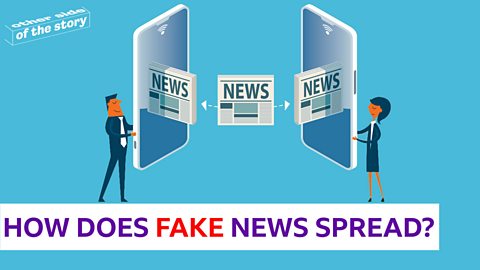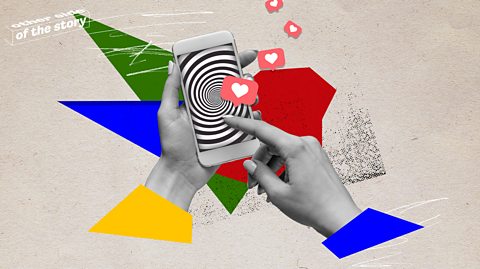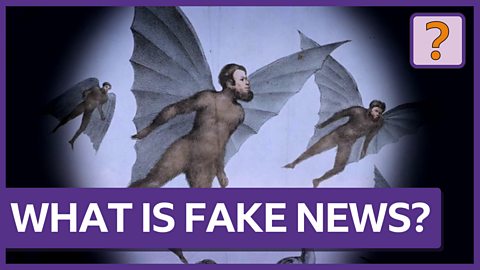Itās great when we see news or opinions that back up our own beliefs, isnāt it?
Posts or points of view that we agree with make us feel reassured and itās always nice to know that other people think the same way.
But because weāre less likely to question something that we like the sound of, itās easy to be taken in by fake news that falls in line with what we believe. Fake news can often spread quickly like this, preying on our emotions as we share and react to stories that weād like to think are true.
Watch the clip below to find out how this confirmation bias can affect what we believe.
When we see a post that tells us exactly what we want to hear, we donāt always bother to check if itās true. Thatās because of confirmation bias. Confirmation bias causes us to favour information that confirms what we already believe or would like to ā and it can get us into trouble.
For example, in Beauty and the Beast, Belle looks past Beastās scary exterior and they fall in love. She even saves him from the angry villagers, and they live happily ever after. Naturally.
But if Belle had believed her fellow villagers that beasts are evil, then when she saw Beast do something perfectly ordinary, she might have thought of it as a negative behaviour. Thatās called interpretation bias.
And when she researched beasts, she might have picked sources likely to confirm her anti-beast attitudes. Thatās research bias.
And when they met, she might have only remembered the bad things sheād heard about Beast, forgetting the good. Thatās memory bias.
So instead of falling in love, Belle might have ended up dating some handsome but disappointing princes. Goodbye āhappily ever after.ā
Aside from leading to bad life choices, confirmation bias can also lead us toward extremist views or make us vulnerable to scams, and more likely to share misinformation with others. And social media has only made the problem worse, because in order to keep our attention, social platforms show us things we already like ā deepening our biases.
So next time youāre agreeing with a new piece of information, ask yourself: do I believe it because of convincing facts and evidence, or because it confirms what I already think? Because thatā¦ is confirmation bias.
The three types of confirmation bias
Confirmation bias is how we all tend to prefer the information or news that confirms what we already believe, rather than challenging it. This can work in three ways:
- Research bias: This is when you search for evidence to back up your opinions by only going to sources that hold similar views. This leads to being really selective when researching and avoiding anything that might challenge you.
- Interpretation bias: If you think a certain way, you might take other peopleās normal everyday actions as extremely negative ā this happens when looking for reasons to disagree with something.
- Memory bias: If you donāt like someone, you probably wonāt remember all the times when they were actually quite nice. This is the same for confirmation bias, making it easy to forget about past events in favour of believing things that make your own opinions seem more truthful than they are.
Get outside your comfort zone
When seeing a news story online or offline that sounds too good to be true, really try to investigate the evidence. Whoās posting or writing about it and why? Is it believable or just something that is designed to appeal to your point of view?
Emotions are a big part of this. Fake news usually aims to provoke a reaction in us, trying to get people to identify with it and share with others. But always remember to pause before you share and think about whether a story is telling you the facts or only the things that you want to hear.
How does fake news spread?
Vick Hope finds out how fake news plays on our emotions and why we should pause before we share.

What are echo chambers?
Find out how being in an echo chamber can make it easier for fake news to spread.

A brief history of fake news
The term 'fake news' might be quite new, but examples of it can be found throughout history.

Fact or Fake?
Find out how to spot and stop fake news with “óĻó“«Ć½ Bitesize.
